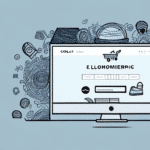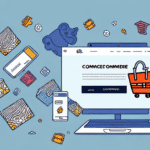The Influencer's Guide: How to Become a CEO Using Private Labeling
If you're looking to start or grow a business, you may have heard of private labeling – a business strategy where you source products from manufacturers and sell them under your own brand name. This can be a lucrative business model, and with the right strategies, you can become a successful CEO in the e-commerce industry. In this article, we'll guide you through the necessary steps to start your own successful private label business.
Introduction: The Power of Private Labeling in the E-commerce Industry
The e-commerce industry is booming, with global retail e-commerce sales expected to reach $6.54 trillion by 2023[1]. Private labeling is becoming increasingly popular within this landscape. Private label products account for a significant portion of sales on major e-commerce platforms like Amazon and Shopify. By offering unique products under your brand, you can achieve higher profit margins and cultivate a loyal customer base.
Moreover, private labeling allows businesses greater control over product quality. By collaborating directly with manufacturers, you can ensure that your products meet specific standards and requirements, leading to higher customer satisfaction and better reviews. This, in turn, can drive increased sales and revenue.
Understanding the Basics of Private Labeling
Private labeling involves sourcing products from a manufacturer and selling them under your own brand name. Unlike dropshipping, where you never handle the products and have the manufacturer ship directly to the customer, private labeling requires you to manage branding, marketing, and sales while the manufacturer handles production.
One significant benefit of private labeling is the ability to create a unique brand identity, setting you apart from competitors. By selecting the right products and branding them effectively, you can establish a loyal customer base and boost your profits. However, it's crucial to thoroughly research and choose a reliable manufacturer to ensure product quality and maintain a positive reputation.
Identifying a Profitable Niche for Your Private Label Products
Identifying a profitable niche is a critical step in starting a private label business. Utilize tools like Amazon's best-sellers list or Google Trends to pinpoint popular product categories. Analyze your competition to uncover opportunities for improvement or to create a distinctive product that stands out.
- Market Demand: Use keyword research tools to assess demand.
- Competition Analysis: Identify gaps in the market.
- Profit Margins: Ensure that production costs allow for healthy margins.
Understanding your target audience is equally important. Conduct market research to grasp the needs and preferences of potential customers. Collect feedback through surveys or social media interactions to ensure your product aligns with market demands.
Additionally, consider the manufacturing and production costs. While crafting a unique and high-quality product is essential, maintaining reasonable production costs is equally important to preserve your profit margins. Collaborate with manufacturers who offer competitive pricing without compromising quality.
Conducting Market Research to Validate Your Niche and Product Ideas
Once you've identified a potential niche, it's essential to validate your product ideas through comprehensive market research. This involves understanding your ideal customer, their pain points, and their willingness to pay for your product. Methods include conducting surveys, leveraging social media insights, and analyzing sales data.
Another critical aspect is analyzing your competition. Identify who your competitors are, what they offer, and how you can differentiate your products. Evaluate their marketing strategies, pricing models, and customer reviews to find gaps in the market that your product can fill.
Leveraging reputable sources like industry reports from Oberlo or Statista can provide valuable insights and data to support your research.
How to Source High-Quality Products for Private Labeling
The quality of your products is paramount to the success of your private label business. To source high-quality products, research reliable manufacturers on platforms like Alibaba or ShipScience's Factory Directory. Request samples to evaluate the product quality before committing to large orders.
Consider the manufacturer's production capacity to ensure they can meet your demand without compromising quality. Building a strong relationship with your manufacturer can lead to better pricing, priority in production scheduling, and smoother communication.
- Quality Assurance: Implement strict quality control measures.
- Manufacturer Reliability: Choose manufacturers with positive reviews and certifications.
- Scalability: Ensure the manufacturer can scale production as your business grows.
Creating a Unique and Memorable Brand Identity for Your Private Label Products
A strong brand identity is essential in the competitive e-commerce landscape. Your brand should be unique, memorable, and clearly communicate the value of your products. This includes developing a logo, website, product packaging, and marketing materials that align with your brand message.
Conduct market research to understand your target audience's preferences, helping you tailor your brand message and design elements to resonate with them. Incorporate your brand values and mission into your messaging to differentiate your brand from competitors and build customer loyalty.
Consistency is key. Ensure your brand has a uniform look and feel across all platforms, including your website, social media profiles, and product packaging. Consistency builds brand recognition and trust, making customers more likely to return.
Designing Eye-Catching Packaging that Appeals to Your Target Customers
Effective product packaging is crucial for attracting customers and protecting your products during shipping. Choose colors, fonts, and images that reflect your brand and appeal to your target audience. Additionally, ensure that your packaging is functional and durable.
With growing consumer awareness of environmental issues, consider using eco-friendly materials for your packaging. Recyclable or biodegradable materials not only reduce environmental impact but also appeal to environmentally conscious consumers. Communicate your commitment to sustainability through your packaging design and messaging.
- Aesthetic Appeal: Use high-quality images and designs.
- Functionality: Ensure packaging protects products effectively.
- Sustainability: Opt for recyclable or biodegradable materials.
Setting Up Your E-commerce Store on Popular Platforms like Shopify or Amazon
After sourcing your products and establishing your brand identity, the next step is setting up your e-commerce store. Platforms like Shopify and Amazon offer user-friendly tools for creating your online store, managing inventory, processing payments, and handling order fulfillment.
Be mindful of the fees associated with these platforms. While they provide access to a vast customer base and numerous built-in features, transaction fees and additional service charges can impact your profitability. Compare the fee structures of different platforms to determine which best suits your business model.
Optimizing your e-commerce store for search engines is crucial for visibility. Incorporate relevant keywords, create high-quality content, and utilize SEO best practices to improve your site's ranking in search engine results. This increases organic traffic and potential sales. Consider using SEO tools or hiring an SEO expert to enhance your store’s search engine performance.
- Platform Selection: Choose the platform that aligns with your business needs.
- Fee Structure: Understand and compare platform fees.
- SEO Optimization: Implement SEO strategies to increase visibility.
Strategies for Marketing and Promoting Your Private Label Products on Social Media
Social media is a powerful avenue for marketing and promoting your private label products. Platforms like Facebook and Instagram allow you to reach a wide audience, advertise your products, and engage directly with customers.
Develop a social media strategy that aligns with your brand identity and targets your specific audience. Regularly post high-quality content that showcases your products, such as photos, videos, and customer testimonials, to build engagement and trust.
Collaborating with influencers can significantly boost your brand’s visibility. Partner with influencers who align with your brand values and have a following within your target market. Offer them free products or commissions in exchange for promoting your products to their audience.
- Content Marketing: Share engaging and relevant content.
- Influencer Collaborations: Partner with influencers to expand reach.
- Promotions and Giveaways: Run contests and giveaways to incentivize engagement.
Building a Loyal Customer Base and Generating Repeat Business through Excellent Customer Service
Excellent customer service is a cornerstone of building a loyal customer base and generating repeat business. Prioritize customer satisfaction by offering prompt and responsive support, addressing complaints and issues swiftly, and providing incentives for repeat purchases, such as discounts and loyalty programs.
Personalization enhances the customer experience. Utilize data on customer behavior and preferences to tailor your products and services to individual needs. Personalized experiences can significantly increase customer loyalty and encourage repeat business.
- Responsive Support: Offer timely and effective customer assistance.
- Problem Resolution: Address issues and complaints promptly.
- Loyalty Programs: Provide rewards and incentives for repeat customers.
Scaling Your Business and Expanding Your Product Line with New Private Label Products
Once your business is established with a successful product line, consider scaling and expanding your offerings. Identify new product opportunities through ongoing market research, staying attuned to industry trends, and listening to customer feedback.
Expanding your product line can involve introducing new private label products that complement your existing offerings. This allows you to cater to a broader audience without the need for significant investment in manufacturing equipment or facilities.
When developing new products, ensure they align with your brand and meet the needs of your target market. Collaborate with reputable manufacturers to maintain quality and consistency across your product range.
- Market Trends: Stay updated with industry developments.
- Customer Feedback: Use feedback to guide product development.
- Quality Consistency: Maintain high standards across all products.
Tips for Sustaining Long-Term Success as a CEO in the Private Labeling Industry
Sustaining long-term success as a CEO in the private labeling industry requires strategic planning and adaptability. Here are key strategies to ensure ongoing growth and stability:
- Stay Informed: Keep up with industry trends, technological advancements, and market shifts.
- Adaptation: Be flexible and ready to pivot your strategies based on market changes and customer needs.
- Innovation: Continuously innovate your products and marketing approaches to stay ahead of competitors.
- Financial Management: Effectively manage finances to ensure profitability and sustainability.
- Team Building: Assemble a strong and competent team to support various aspects of your business.
- Work-Life Balance: Maintain a healthy balance to prevent burnout and maintain productivity.
Conclusion: Taking Action to Start Your Own Successful Private Label Business
Starting a successful private label business requires dedication, thorough research, and proactive action. By following the steps and strategies outlined in this guide, you can develop a profitable niche, source high-quality products, and build a strong brand identity that resonates with your target audience. Emphasizing customer service and committing to continuous innovation will position you as a successful CEO in the dynamic e-commerce industry.
Ready to take the next step? Visit ShipScience for more resources and support to kickstart your private labeling journey.




















